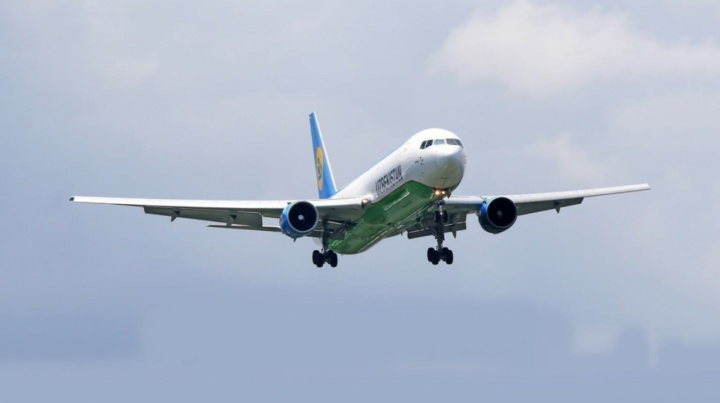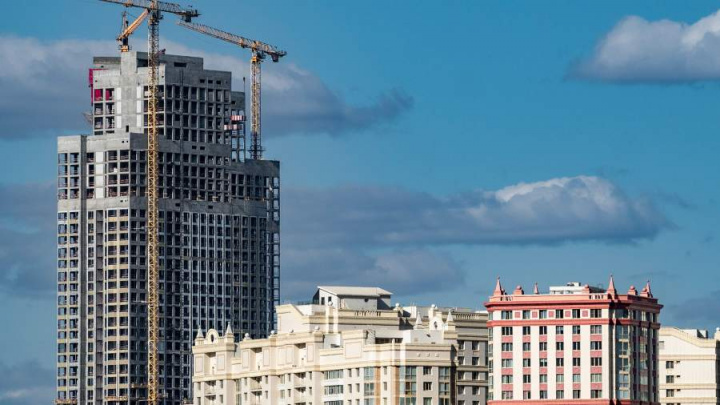Russian law enforcement used force against Uzbek migrants
On January 28, Russian law enforcement officers conducted a raid at the Central Market in Kazan, Tatarstan, during which force was used against Uzbek citizens. An Uzbek migrant who spoke to Kun.uz explained that such raids often leave migrants under intense psychological pressure, with the only options being to pay a bribe to avoid further complications or face deportation. "Raise awareness of this issue — hopefully, it will attract someone’s attention," said the source.
On that day, Russian Federal Migration Service officers, in cooperation with law enforcement, carried out raids at the Central Market, known as "Kolhozny Rynok," in Kazan. According to the Uzbek citizen, during the raid, Russian officers treated Uzbek citizens roughly, using force to detain them.
"One may be moved to tears witnessing the situation here. Can Uzbek labor migrants really be treated with such disrespect? Raise awareness of this issue — hopefully, it will attract someone’s attention," said the complainant. He also mentioned that similar raids took place on February 6.
"During such raids, most migrants are under psychological pressure. No matter how much [money] they pay, they just want to avoid deportation. The officers know that many migrants do not live at their registered addresses. While this violation can be fined 2,500 RUB, officers often take 5,000 RUB. If a migrant lacks proper documentation, the fine is even higher. In addition, some migrants are taken to temporary detention centers for documentation processing, and later deported. Some are given a deadline to leave," the complainant explained.
He further revealed that such raids tend to target areas where Uzbek and Tajik migrants are gathered. Even if migrants have complete documents, including a residence certificate, they are still detained. Once their documents are checked, they may be released. However, he emphasized that many believe there is little point in seeking help from Russian consulates.
"Very few issues are resolved when contacting the consulate. The lines are long, and nothing gets solved, but they take their breaks on time. The last time we visited, in 2021, if I remember correctly, my companion left after having an argument over an issue. The consular staff seemed more interested in getting through their workday," he said.
He also pointed out that the treatment of migrants varies across Russian regions.
"Since most of the people in Kazan are Tatars and Muslims, the treatment is much better. The law enforcement officers speak calmly even on the streets. However, in Moscow and St. Petersburg, migrants are treated like prey. They are surrounded and caught from all directions. It's like hunting a herd of animals that have been released into the open.
I do not believe things would improve even if we demanded our legal rights or if our government officials came to discuss the situation with the Russian government. They just do not understand these issues. Nationalist rhetoric is growing among the people. Hearing about what’s happening here brings people to tears. Many have lost hope, wondering if they will ever be able to live and work in peace. Some tell us, 'Just go back and stop making it harder on yourselves,' but even if we return, what will we do in Uzbekistan?" — shared our compatriot.
The difficult circumstances faced by Uzbek migrant workers in Russia are not new. Despite repeated reports and discussions, the situation remains unchanged. Particularly since the start of the Russia-Ukraine war, lawlessness has worsened, and due to a shortage of soldiers, Russian law enforcement agencies have exploited the most vulnerable group: migrants. For example, according to Alexander Bastrykin, Chairman of the Russian Investigative Committee, more than 10,000 migrants have been sent to fight in the war.
Additionally, pressure on migrants who send more money to their homeland than the gold export revenue is increasing within Russia. Specifically, according to a decree signed by Vladimir Putin in January 2025, more than 600,000 undocumented migrants in the country must either leave Russia or legalize their status by April 30 of this year.
Moreover, a range of new restrictions has come into effect, including penalties for migrants who do not teach their children Russian, increased costs for permits, significant cuts to job opportunities for migrants, and the refusal to admit migrant children who do not speak Russian into schools. Xenophobia against migrants is on the rise in Russian society, with many of our citizens being detained at airports and sent back.
Furthermore, Russian authorities are considering measures such as imposing taxes on migrant money transfers, forcibly expelling migrants whose work contracts have expired, and requiring mandatory medical examinations upon entry to Russia.
Kun.uz has been covering these issues through various discussions and expert programs, but the Ministry of Foreign Affairs and the Migration Agency have not provided specialists to address public concerns or answer questions on these matters.
On February 4-5, a delegation from Uzbekistan, including representatives from the Ministry of Foreign Affairs, the Ministry of Employment, and other government agencies, visited Moscow for meetings with their Russian counterparts. We hope that, as a result, the use of force against our compatriots in Russia and the promotion of war recruitment will cease, and that their legal rights will be safeguarded.
Related News

15:23 / 11.03.2025
Uzbekistan Airways flights diverted from Moscow due to drone attack

11:27 / 11.03.2025
More Uzbek citizens purchasing real estate in Russia as foreign demand rises

18:13 / 10.03.2025
Russians turn to Uzbekistan for "card tourism" following Kazakhstan's restrictions

12:18 / 07.03.2025



